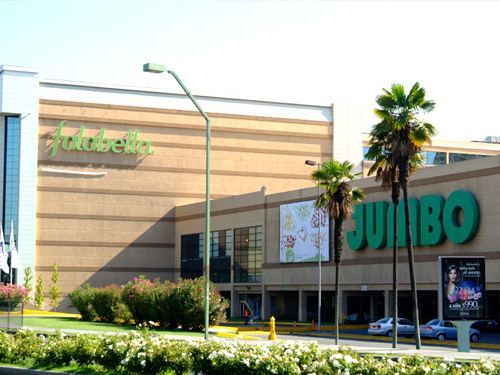Navigating a grocery store in any new country can be an intimidating feat. Strange foods, unfamiliar brands, foreign currencies, not to mention everyone talking in a foreign language. Luckily in Santiago, you’ll find many familiar products and brands in any supermarket. There are however some tips and tricks to make your supermarket experience easier, faster, and less confusing.
The major supermarkets in Santiago are: Jumbo, Tottus, Lider, Unimark, Santa Isabel, and Ekono. These are ordered more or less from largest to smallest. If you are looking for more diverse product choices, more international products, and a bigger supple of fresh fruits, vegetables, fishes, and meats, it is recommended to find your nearest Jumbo or Tottus. Lider and Ekono actually belong to Walmart, so it might be interesting and refreshing to see Walmart’s Great Value products in these markets. Although prices are comparable in all supermarkets, you can find cheaper prices in Ekono. However, these stores rarely carry a decent supply of fruits and vegetables, and restock their shelves much less often than the other stores.
When buying fruits, vegetables, and fresh bread, make sure to have them weighed at their stations. Cashiers don’t have the ability to weigh and price these products, and it could be embarrassing to hold up the line by running to weigh your products. Another thing to know is that milk is not refrigerated. It is stored on the shelves in boxes, and is perfectly safe to drink immediately.
Once you have successfully navigated the aisles and are ready to pay, there are a few things to know before reaching the cashier. Every cashier in every grocery store will ask you the same two questions. First, if you have a Rewards card for their store, and second, if you would like to donate your extra small pesos to an organization. In Chile, they still use 1, 5, and 10 peso coins. The 1 peso coins are worth $.0018 USD and look like small silver plastic coins. It is typical to not want to carry these around as they are not worth much, and it is easier to donate them. So the typical answers to these questions would be “no” to the first one and “si” to the second. Many times these donations go to the “bomberos,” or Firefighters, who do not get paid a salary in Chile and do all of their work on a volunteer basis. As the cashier scans your products, a young boy or girl will bag your purchases. These baggers make all of their money from your tips, they are not paid a salary, so it is typical to pass them one or two “monedas,” or coins, of the 100 denomination to thank them for their services.
While it is true that all prices are comparable in the supermarkets, if you are buying a larger quantity of fruits and vegetables, it is recommended to find your local bodega, or small little stores that sell fresh products, and some staples like yogurt, milk, and grains. Here you will find a wider range of fruits and veggies for a better price. Just remember to bring cash; these places rarely accept credit cards.
It is so relieving to find familiar products from home at the supermarkets in Santiago. Just remember to try out unique Chilean foods and spices to take full advantage of your time in a new country!
